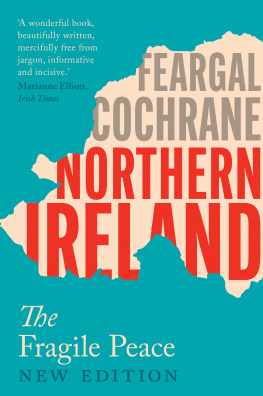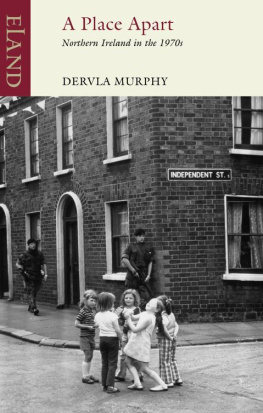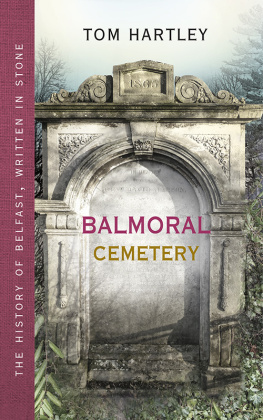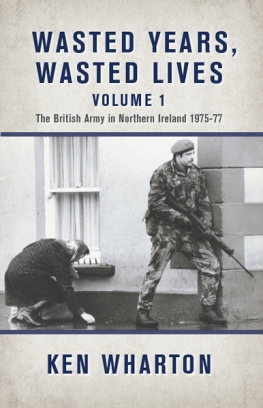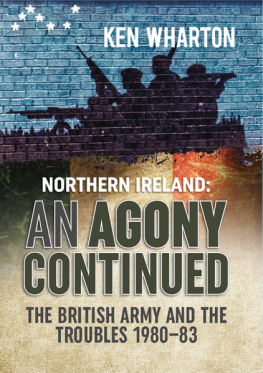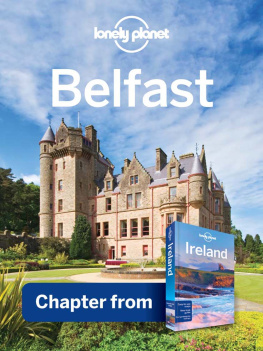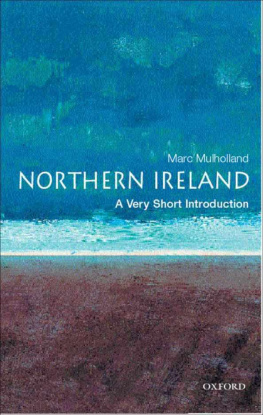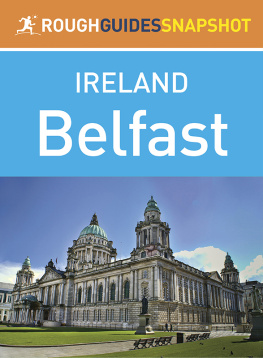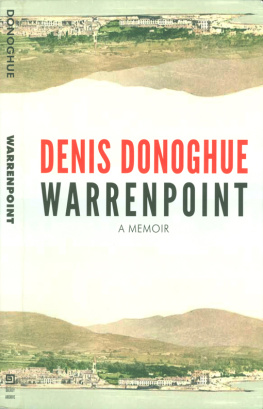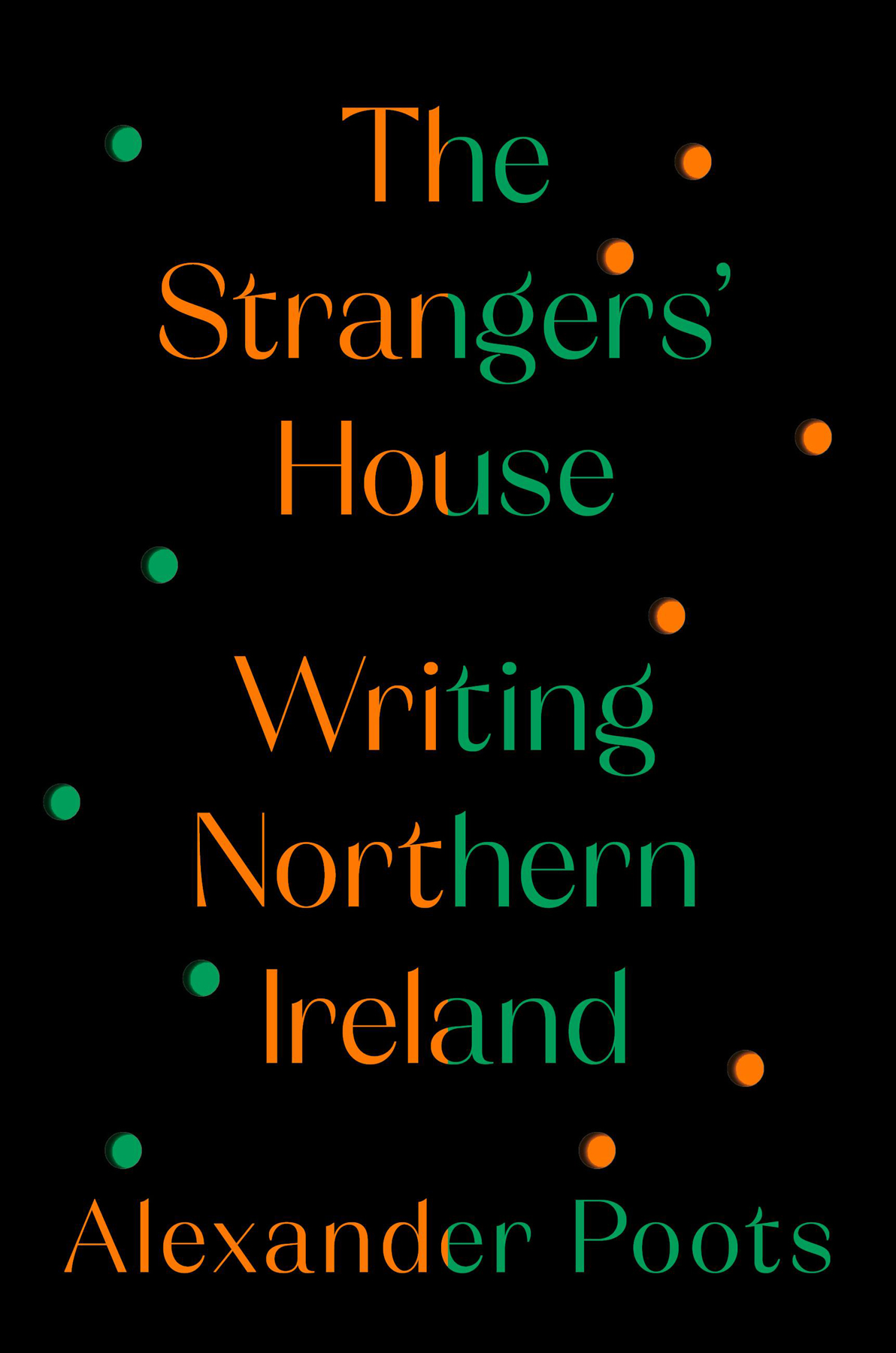
Copyright 2023 by Alexander Poots
Cover design by Sarahmay Wilkinson
Cover copyright 2023 by Hachette Book Group, Inc.
Hachette Book Group supports the right to free expression and the value of copyright. The purpose of copyright is to encourage writers and artists to produce the creative works that enrich our culture.
The scanning, uploading, and distribution of this book without permission is a theft of the authors intellectual property. If you would like permission to use material from the book (other than for review purposes), please contact permissions@hbgusa.com. Thank you for your support of the authors rights.
Twelve
Hachette Book Group
1290 Avenue of the Americas, New York, NY 10104
twelvebooks.com
twitter.com/twelvebooks
First Edition: March 2023
Twelve is an imprint of Grand Central Publishing. The Twelve name and logo are trademarks of Hachette Book Group, Inc.
The publisher is not responsible for websites (or their content) that are not owned by the publisher.
Twelve books may be purchased in bulk for business, educational, or promotional use. For information, please contact your local bookseller or the Hachette Book Group Special Markets Department at special.markets@hbgusa.com.
Library of Congress Cataloging-in-Publication Data
Names: Poots, Alexander, author.
Title: The strangers house : writing Northern Ireland / Alexander Poots.
Description: First edition. | New York, NY : Twelve, 2023. | Includes bibliographical references and index.
Identifiers: LCCN 2022047954 | ISBN 9781538701577 (hardcover) | ISBN 9781538701584 (ebook)
Subjects: LCSH: English literatureNorthern Irish authorsHistory and criticism. | English literature20th centuryHistory and criticism. | LCGFT: Literary criticism.
Classification: LCC PR8753.P66 2023 | DDC 820.9/9416dc23/eng/20221130
LC record available at https://lccn.loc.gov/2022047954
ISBN: 9781538701577 (hardcover), 9781538701584 (ebook)
E3-20230203-JV-NF-ORI
For my parents
At times it seems that every inch of Belfast has been written-on, erased, and written-on again: messages, curses, political imperatives, but mostly names, or nicknamesRobbo, Mackers, Scoot, Frasometimes litanized obsessively on every brick of a gable wall, as high as the hand will reach, and sometimes higher, these snakes and ladders cancelling each other out in their bid to be remembered. Remember 1690. Remember 1916. Most of all, Remember me. I was here.
Ciaran Carson, Schoolboys and the Idlers of Pompeii
Northern Ireland is comprised of six counties: Antrim, Down, Armagh, Tyrone, Fermanagh, and Derry. These six counties form the greater part of the ancient province of Ulster. Ulsters three remaining countiesMonaghan, Cavan, and Donegalare part of the Republic of Ireland. The partition of Ireland, on 3 May 1921, divided not only the island, but Ulster as well.
Nationalists view Northern Ireland as a colonial hangover, and often favour alternative expressions for the region. The North of Ireland is the most common of these in print, though The Six Counties (along with variations like the Upper Six or the Occupied Six) is used frequently enough in conversation, in song lyrics, and on social media to be noteworthy. In the Republic, most people refer simply to the North.
For Unionists, Northern Ireland is an integral part of the United Kingdom. It is the name of their country and their home. Unionists waxing poetic may sometimes refer to Northern Ireland as Ulster, although this is not as common as it used to be.
A word on religion. It is true that the vast majority of Nationalists are Catholic, and that an overwhelming number of Unionists are Protestant. Consequently, religious affiliation has often been used by journalists as a shorthand for political belief. This has given rise to the viewin England, at least, astonishingly widespreadthat the Troubles were in essence a theological dispute that spilled out of the divinity schools and into the streets.
The reality is quite different. Religion may be a useful shorthand, but it is a shorthand that records only a fraction of what is said. Certainly faith has played a vital part in shaping Northern Irish society. This has always been a conservative part of the world, though things are changing, at least in urban areas. Decades of scandal have lamed the Catholic Church. Sinn Fin, the largest force in Nationalist politics, is avowedly socialist in orientation. And although Presbyterian and Evangelical denominations remain powerful in Unionist political circles, their influence on broader society is much reduced, at least among the young. The internet is a great leveller.
These are recent developments. Yet even fifty years ago, when the Catholic Church still held sway and Presbyterian ministers still spit fire from the pulpit, religion was rarely the primary source of friction between communities. Access to good land and decent employment, combined with competing ideas of what and where home is, are of much greater importance to the history of conflict in Northern Ireland.
I am aware of how much like a vocabulary list this note appears. Reality has never been so simple. The real story of Northern Ireland exists in the gaps between the blanket terms and the binary opposites. This is something which the men and women who write well about this place have always understood.
Alexander Poots, Belfast, January 2022
Ireland is water country leased to solid ground. When the end comes, it will come in a long seep, the rivers pooling out to meet as friends, loughs unnamed by sea. Final lights on the hilltops: Donard, Mullaghcleevaun, Carrauntoohil. Then the fussing of damp firewoodlast of the human smellsand a lifting at the waist as land drops away, lease expired.
Water is a great temptation for the Irish writer. James Joyce opens Ulysses atop a Martello tower overlooking Dublin Bay, where Buck Mulligan muses on The snotgreen sea. The scrotumtightening sea. The first word of Finnegans Wake is riverrun. Standing on a grey pavement, W. B. Yeats is recalled to The Lake Isle of Innisfree by the sound of lake water lapping within his heart. There is no escaping the water. Eavan Bolands Cityscape (hardly a promising title for the literary dowser) is a poem about light, but takes in a trip to the seawater baths, finds Dublin forever unsettled between sluice gates and the Irish Sea, and closes with the image of a glass eel, a translucent visitor / yearning for the estuary. Jonathan Swift wrote his first great work, A Tale of a Tub, while a clergyman at Kilroot, a small place on the northern shore of Belfast Lough. Irish literature is suffused with a chill damp that lingers between the toes. The sea, as Buck Mulligan observes, is our great sweet mother.
Every Irish city sits beside a trembling flatness. Belfast, Cork, and Derry have their sea loughs. Dublin crouches low to the bay. Galway braves the North Atlantic. Limerick is almost a delta city, straddling the Shannon as it finds the ocean. Waterfords name tells its own story. Out in the countryside are the peat bogs, the streams, the brown water standing at the edge of fields. The punkish algae advancing always across bus stops and machinery and the windows of half-built homes. Moss grouting walls. The hills are green and indigo, except for a few days in the winter cold, when they pale into white. Water is a constant companion on this island, the writers natural reference and resource.
I begin with water because Northern Ireland is liquid in every possible sense. Books about this place are usually prefaced by a glossary of political positions and cultural identities. I have succumbed to this temptation myself in order to give a basic orientation to readers unfamiliar with Northern Irelands unique vocabulary, but such thumbnail sketches are always failures in the end, bungalows built on floodplains. They are failures because they attempt to order a watery world, in which liquids become solid for a time, only to melt away again.


